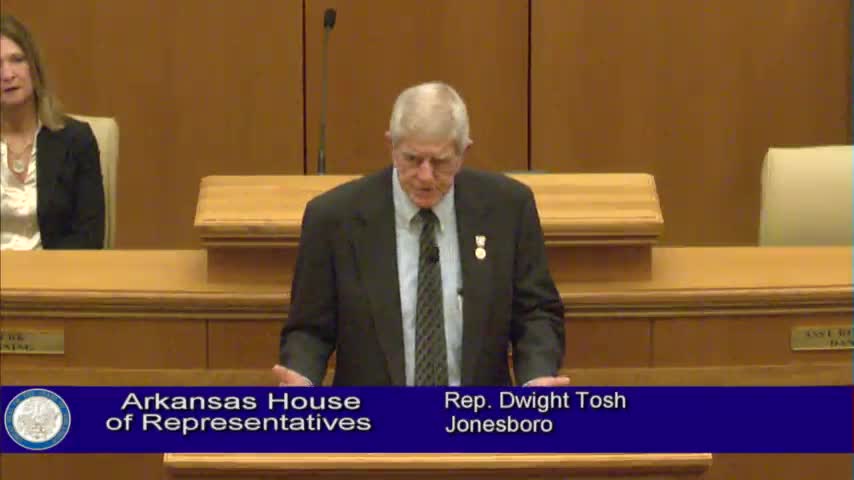House approves law to criminalize unlawful squatting after extended debate
Get AI-powered insights, summaries, and transcripts
Subscribe
Summary
The Arkansas House passed House Bill 10 49 to create a criminal offense for unlawful squatting, after sponsors and supporters described property owners’ difficulties under current civil-only remedies and opponents raised concerns about safeguards and fairness.
The Arkansas House of Representatives on Feb. 10 passed House Bill 10 49, a measure that creates a criminal offense for unlawful squatting and is intended to give property owners a criminal-remedy option when unauthorized occupants claim residential property.
Representative Tash, who sponsored the bill, said the measure responds to constituent cases in which residents returned to find strangers in their homes and were told by responding officers that the matter was civil only. “When law enforcement arrived, they talked to the individuals inside the house. The law enforcement officer came back out, told my friend, said, ‘Look, I can't help you. They're squatters. They're squatters. And this is a civil matter,’” Tash said on the House floor.
The sponsor outlined the civil process property owners now face — notice to quit, filing a forcible-detainer complaint, a hearing, obtaining a writ of possession and then coordinating sheriff involvement — and said the criminal statute aims to address what he described as a slow and inadequate civil remedy for owners who find someone asserting possession.
Supporters spoke of personal experiences and public-safety concerns. Representative Lundstrom said the bill also protects good tenants from having prospective criminal activity overrun a duplex or rental property. Representative McGrew recounted a case in which a tenant invited a guest who then allegedly stayed, abused the tenant and forced the landlord to pursue removal through the civil process at substantial cost.
Supporters also said the bill was written to avoid trampling legitimate landlord-tenant disputes. The sponsor said the Judiciary Committee reviewed the measure and that the bill includes protections for owners who file false claims.
Opponents in committee raised process questions during the bill’s drafting, but no speaker on the House floor opposed the bill during final consideration. The sponsor thanked a long list of contributors and said he had the governor’s office support.
The House recorded a roll-call tally of 89 yeas, 2 nays and 5 present; the measure passed with the emergency clause. The bill will proceed to the Senate for consideration or final enactment steps as required.
